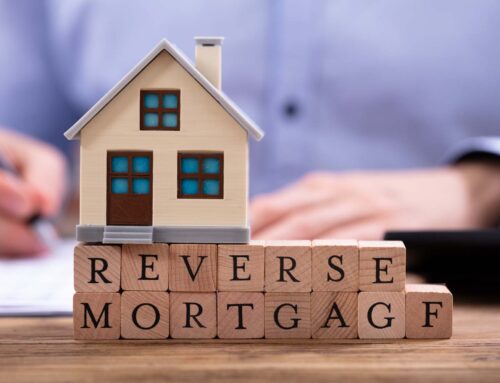The term “reverse mortgage” is a little bit of a smokescreen.
I have been intrigued by the concept of a reverse mortgage for some years and just recently a widow at the church I attend asked me to help her look into it and see if it was appropriate for her. As with everyone, her circumstances were unique and the specifics are not germane to this article, so I’ll share with you what I found out about the general principles, the pros and cons, and the questions to ask yourself if you are considering a reverse mortgage.
First let us make it clear that the term “reverse mortgage” is a little bit of a smokescreen. Think of it as simply an ordinary mortgage whose proceeds are paid out to the borrower(s) over time, rather than all at closing like a home equity loan. In other words, these mortgages take the existing equity in your home, pay it back to you and add interest and fees that do not need to be repaid until you either sell the home, move out permanently (perhaps to a nursing or retirement home) or die. Then the lender takes possession and sells the home and the loan balance with interest and accrued fees taken from the sale proceeds.
According to the Federal Trade Commission (USA), there are basically two types of reverse mortgages:
Single-purpose reverse mortgages are the least expensive option. They are not available everywhere and can be used for only one purpose, which is specified by the government or nonprofit lender. For example, the lender might say the loan may be used only to pay for home repairs, improvements, or property taxes. Most homeowners with low or moderate income can qualify for these loans.
Home Equity Conversion Mortgages or HECMs and proprietary reverse mortgages (the same thing only offered by private parties, not the government) will probably be more expensive than traditional home loans, and the upfront costs can be high. That’s important to consider, especially if you plan to stay in your home for just a short time or borrow a small amount. HECM loans are widely available, have no income or medical requirements, and can be used for any purpose.
How much you can borrow with a HECM or proprietary reverse mortgage depends on several factors, including your age, the type of reverse mortgage you select, the appraised value of your home, and current interest rates. In general, the older you are, the more equity you have in your home, and the less you owe on it, the more money you can get. The HECM lets you choose among several payment options.
You can select:
- A “term” option – fixed monthly cash advances for a specific time.
- A “tenure” option – fixed monthly cash advances for as long as you live in your home.
- A line of credit that lets you draw down the loan proceeds at any time in amounts you choose until you have used up the line of credit.
- A combination of monthly payments and a line of credit.
Reverse mortgage loan advances are not taxable in the United States (at this time), and generally don’t affect your Social Security or Medicare benefits. You retain the title to your home, and you don’t have to make monthly repayments. The loan must be repaid when the last surviving borrower dies, sells the home, or no longer lives in the home as a principal residence.
So suppose my wife and I have decided that our children can live without any inheritance they would have gotten from the sale of our home and we decide to spend their inheritance on something entirely frivolous. Or maybe we have a crisis that we can only solve with an influx of cash. What are the dangers of such a reverse mortgage? I found a great article in Forbes Magazine, by Carolyn Rosenblatt that really summarized what they call “financial elder abuse”.
In summary they report the following pitfalls:
We might need or want other living arrangements in the future. When that happens the mortgage becomes due and it has to be paid off which may further drain our financial resources with the closing costs, and other costs. Can we afford that?
Anyone not on the loan will be moved out of the home if the person on the loan moves out or dies. They are “tenants” according the rules of reverse mortgages and they have to leave when the borrower does. It is imperative that both spouses are on the loan for this reason.
We are still liable for property taxes, insurance and, home maintenance. If we fail to meet any of these obligations, the lender can then foreclose.
If our heirs want the property, the entire principal, plus accrued interest and service fees must be paid in full to the lender before they can legally take possession of our home. It is entirely possible that the total for this may be more than the value of the house. Can your children or charity afford to do this? If not the home goes to the lender.
Calculating what you can get out of your home with a reverse mortgage is akin to trying to figure out who is responsible for the national debt. And even if you do figure it out, how can you be sure that you get enough to last you into your 90s? Or will there be enough to meet intensive nursing home or home care? Many things can cause us to run out of money to make the loan payments, making us go into default and ending up homeless and impoverished.
So what’s the bottom line? According to Forbes, “consider a reverse mortgage an option of last resort. If [we] are charmed by the TV ads, get advice from a competent financial planner and elder law attorney before doing anything. Recognize that [we] might not be in perfect health to the end of [our] days and that care at home might cost more than a reverse mortgage could cover, especially over a period of years”.
There just might be less costly, smarter ways to deal with the need for money when funds run low.
Sources:
http://www.consumer.ftc.gov/articles/0192-reverse-mortgages
http://www.forbes.com/sites/carolynrosenblatt/2012/07/23/hidden-truths-about-reverse-mortgages/
Other resources:
http://www.dailyfinance.com/2011/08/31/reverse-mortgages-benefits-risks-money-and-happiness/
http://abcnews.go.com/Business/senior-homeowners-warned-risks-reverse-mortgages/story?id=17889575
http://money.cnn.com/2014/02/07/real_estate/reverse-mortgages/









